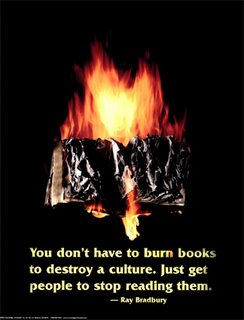007: License to Be

 (Ian Fleming's drawing impression of 007)
(Ian Fleming's drawing impression of 007)
Casino Royale was Ian Fleming’s first novel about James Bond. James Bond was a fictional agent 007 of Her Majesty’s Secret Service under MI6 who was brought to life by Ian Fleming’s series of spy thrillers and latter the movies.
After 24 movies, James Bond is the longest running and most successful film franchise in cinema history (21 movies by EON productions, two independently produced and one made for television which was the original Casino Royale in 1954).
James Bond is a psychopathic killer with an addiction for violence, sex, high tech gadgetry, fast cars and martini (shaken but not stirred). Yet his appeal has been reincarnated through 6 actors, the latest being Daniel Craig. In my mind, Sean Connery’s James Bond is still the best and conveys the essence who Bond really is. 
James Bond is one of the few agents in MI6 who has the code “00”. The double zeros is a license to kill. This means that he is above the law and is empowered to be judge, jury and executioner. The fact that his movies are littered with bodies is obvious to all fans and may be the attraction of the franchise. That and the beautiful “Bond girls”!
The double zero or license to kill is an interesting concept. Whoever has that license is above the law. This brings to mind our Christian concept of “law” and “grace”. As Christians, we know that we are under God’s grace and that the atoning death of Jesus Christ on the cross has given us our freedom and our salvation. We are under grace and not the law. Are we then above the law?
In the Old Testament, the law brought condemnation and death because no person was ever good enough to fulfill all of its requirements. Christ’s death on the cross saved us from the law. Christ’s atonement has fulfilled all of the law’s requirements. Hence we are free. So then, what is our relationship with the law? The law is still here. It just no longer condemns us.
Antinomianism is a belief that the law does not apply to Christians. The word "antinomian" is derived from two Greek words - "anti" meaning "against," and "nomos" meaning "law." Antinomians are against the use of the law in the lives of Christians. Christ’s sacrifice has made us free of the condemnation of the law (Romans 7:4). We are under grace. Does grace means that we do not have to do anything religious anymore? Does grace means that having received the righteousness of God, there is no need to take care of our souls and our characters, to serve other people inside the church and outside the church? 
Can we just relax and let God takes care of everything? Taken to the extreme, antinomianism is a license for immorality. Under grace, we are already saved so there is no need to obey the law. Hence we can live an immoral life and still go to heaven.
While I believe no one reading this will believe in extreme antinomianism, I believe there is a lot of confusion among Christians about the role of the law in our lives. Yes, the law still has a role in our lives. Paul wrote, "Do we then make the Law void through faith? May it never be! Rather, we establish the Law" (Romans 3:31). Christ in his atonement bought us justification in the law. God never meant the law to condemn but to guide. Now that Christ have taken the condemnation of the law out of the way, we Christians can establish the law as the way it should be- a rule of moral conduct that pleases God.
The error in antinomianism is that it fails to balance the fulfillment of the law in a Christian's justification with its use in his or her sanctification. Our justification is by faith and our sanctification is by grace. Sanctification is the process of character development as we grow into the character of Christ. This process is achieved by the work of the Holy Spirit in our lives and by the means of grace provided by God. The means of grace are baptism, the sacraments, Bible study, prayer, serving, fellowship and circumstances. These will help us to grow by honing and refining our characters. The law is the guide in our sanctification. The law shows us the moral code that God expects of us. The law should give us joy so that we can exclaim with David, "The statutes of the LORD are right, rejoicing the heart: the commandment of the LORD is pure, enlightening the eyes. More to be desired are they than gold, yea, than much fine gold: sweeter also than honey and the honeycomb" (Psalm 19:8, 10).
As Christians we are not condemned by the law. Yet we are not totally free of the law. We are to follow the law which is our guide for our sanctification. Yet, we are also above the law. This is because of the “now and then” teaching of the Bible. We are bound by the law with regards to our sanctification now but one day at the Second Coming of Jesus Christ, we shall be perfect in our resurrected bodies and hence be above the law. Then we shall all be true 007 (in numerology, seven means completeness) - licensed to be perfect.
Soli Deo Gloria
Labels: Movies, Spiritual Formation


























